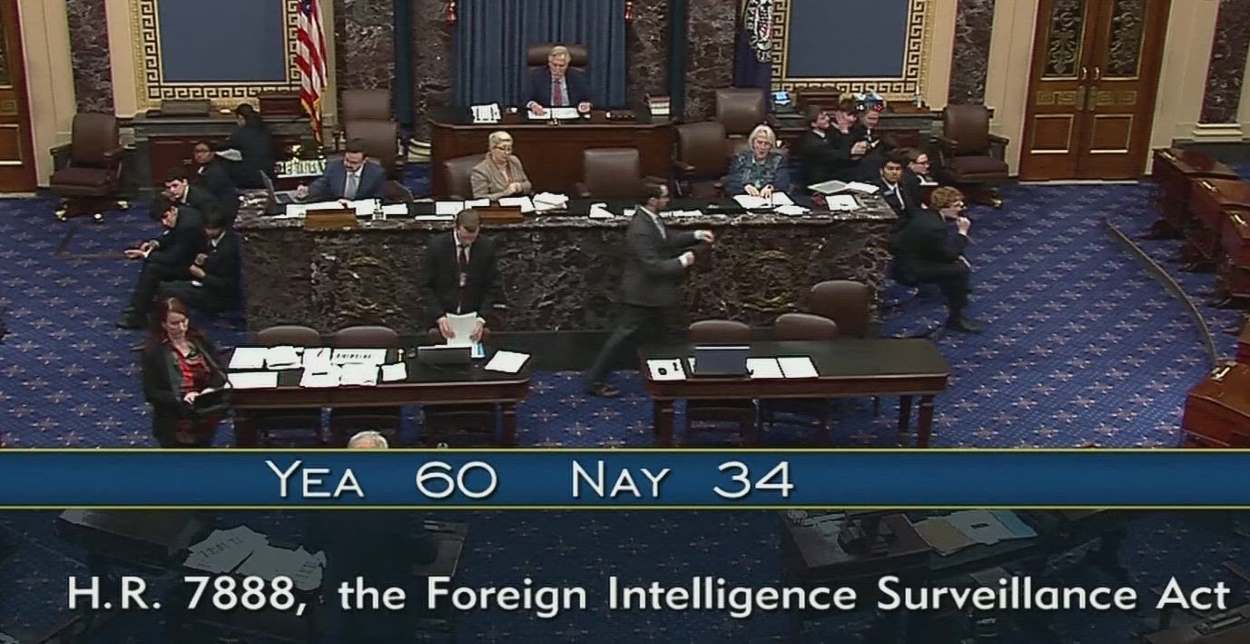The U.S. Senate approved reauthorizing a FISA controversial surveillance program, narrowly avoiding its midnight expiration.
According to the White House, President Joe Biden is expected to sign the reauthorization promptly. Senate Majority Leader Chuck Schumer highlighted the bipartisan effort: “Democrats and Republicans came together and did the right thing for our country’s safety.”
Jake Sullivan, the White House national security adviser, described the legislation as crucial for U.S. intelligence and noted its importance in global surveillance efforts.
Section 702 of the Foreign Intelligence Surveillance Act (FISA) allows U.S. agencies to monitor foreign entities overseas by accessing data from U.S. digital infrastructures, such as internet service providers. Surveillance is intended to track spies, hackers, and militants.
Despite its importance for national security, FISA has faced bipartisan criticism for infringing on Americans’ privacy rights. House Republicans halted the bill three times in five months, citing these concerns, before it passed with a 273-147 vote after reducing its duration from five years to two.
Top officials have warned that failing to reauthorize the program could have severe consequences. The legislation moves to the Democratic-majority Senate, which is expected to pass, following a similar measure approved two months earlier.
The use of foreign surveillance data by domestic law enforcement without a warrant has raised alarms across the political spectrum. Recent instances where the FBI used such data to investigate Black Lives Matter protesters and other domestic issues have intensified debates over the program’s integrity and the balance between security and privacy.






